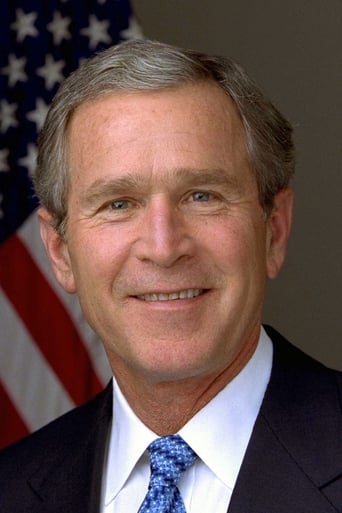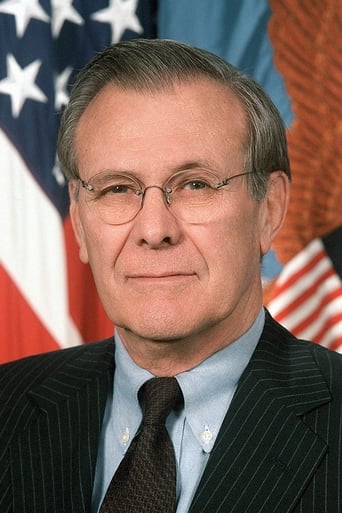Freaktana
A Major Disappointment
ThedevilChoose
When a movie has you begging for it to end not even half way through it's pure crap. We've all seen this movie and this characters millions of times, nothing new in it. Don't waste your time.
Aneesa Wardle
The story, direction, characters, and writing/dialogue is akin to taking a tranquilizer shot to the neck, but everything else was so well done.
Kaydan Christian
A terrific literary drama and character piece that shows how the process of creating art can be seen differently by those doing it and those looking at it from the outside.
Dennis Littrell
(Note: Over 500 of my movie reviews are now available in my book "Cut to the Chaise Lounge or I Can't Believe I Swallowed the Remote!" Get it at Amazon.)While this is not by any means a prize-winning documentary it is still worth seeing because of the perspective gained. To see the war through Arab/Muslim eyes is what is gained. It is a bit chilling. Most of us watched the war through the eyes of CNN or Fox or PBS or one or more of the networks, and we saw a biased view. The real carnage was withheld from us because it was believed that to show the bleeding and mangled bodies was to (1) inflame opinion (2) give assistance to the enemy.It was almost impossible for an American news source to present the war as it really was. No American network executive could do that. But for Al Jazeera, no such reluctance existed. And that is the value of this documentary: it allows us to see what our own news media dared not show, although that too was only part of the story.Filmmaker Jehane Noujaim uses interviews and footage from inside Al Jazeera's "control room" and footage from the communications center of the coalition forces to show how the reporters worked. Reports from the US authorities, Rumsfeld and the generals, the media officers in the field and at the communications center, are contrasted with actual footage and reports from Iraq. It is clear that the news was managed by both Western services and by Al Jazeera to conform to the expectations and interests of their differing audiences.Frankly I was surprised that the bias wasn't greater (on both sides). I came away feeling that, given that modern wars are won or lost to some extent by how well the combatants manage the news, this war within a war was a toss up. And indeed despite Bush's declaration of victory aboard the aircraft carrier, the war on the ground as it exists today is still very much a toss up. Coalition forces roared into Iraq and found very little resistance. And then began the insurgency. What does it mean to win? How does one side lose? As in Vietnam, victory or defeat is to some extent in the eyes of those watching. In the field there was and is no victory. There is only carnage. And so the combatants try to spin the war to their advantage, because it is in the spin that one may find victory regardless of what happens in the field of battle. In this case, Saddam Hussein and the insurgents had no media. But the Muslim/Arab world needed such a media, and thereby arose Al Jazeera to spin the other side. This documentary affords us a quick look at that network.However I don't think this documentary was very effective. It lacked focus and continuity. It seemed hastily thrown together. We are shone some interviews, some on-camera reportorial and editorial activities, some footage from the field, from Baghdad, from Mosul. An Al Jazeera reporter is killed by an American missile. The people at Al Jazeera are deeply saddened and outraged. They think it was on purpose, to "punish" them for reporting what Rumsfeld doesn't want reported, and they may be right; but somehow the loss seems almost trivial compared to the rest of it: the tens of thousands of people dead, the uncounted maimed and wounded, the hundreds of billions of dollars spent like buckets of water poured upon a vast and seething desert. Somehow the "news" of the news reporters themselves seems somewhat irrelevant, almost, I thought, a vanity show. We have the power to report what happens, they are telling us. Therefore we have the power to create what happens.As was famously said, "In war, the first casualty is truth." One thing this documentary does do well is demonstrate the truth of that adage.
jdyer-7
Dear IMDb:I found no other way to do this, so I'm using the "review" feature to do it: I couldn't remember the name of this film for many minutes (almost an hour) and I used your "keywords" and so on... but I couldn't draw up "Contol Room" that way.. Even when I typed in "iraq," or "Iraq War," I didn't get Control Room as one of the films on your data base. Now, I know that "key word" is not the same as, say, "Subject Heading" in a Library... but, it still bothers me, that key word means (evidently) nothing more than "one of the words of the title.." So, for example, if I was interested in Austrailia's history in the first World War, I could type in all those words into the key words option, but my search wouldn't come up with "Gallipoli," because that isn't a key word?In short: is there no way to have a "subject search" as part of your searching options? (And if not, why not?)Yours,Jerry Dyer
nola_rice
I just watched this documentary and I personally found it very interesting. I'm a communications major and one thing they tell you at school is that if you want to know what's going on in a specific country, you should watch that country's news. I know in war time there is no such thing as a good side or a bad side but what this movie shows is the Iraqi side, the one neither Fox, CNN or BBC will ever show. I have been against this war from the very beginning and every time I see images of all those innocent civilians, specially children, either murdered or hurt, it just breaks my heart. Although I'm not American, I also feel for those innocent soldiers who are sent there to fight for a cause they believe in, a cause that in my opinion, is nothing but an greedy, selfish, crazy man's goal. I believe the American people should watch this documentary, it may not be the absolute truth, but it can help them understand the other side of this horrific story, the one their local news, CNN or Oprah Winfrey wont show.
wierdo4jc
Recently in my English class, we read "Living-Room Wars," by David D. Perlmutter that discussed how most people gain information on rather large topics like contemporary wars from sitting on their couches in their living rooms, watching the television set. In his essay, Perlmutter describes the term "living-room war" not as "physical proximity - battle that can be smelled and felt a few inches away – but the para-proximity enabled by modern communications technology, especially the satellite" (Perlmutter 525). They see bloody drastic images of men fighting other men with brief captions like "live" and 'up close and personal" so they think they are experiencing war for themselves. He also acknowledges the great influence newscasters have because they act like subjective filters that restrict the public's view of war and narrow or even sometimes make the interpretations the public have. What the public sees on the news channels is what they are told is important and think is important because that is what is being shown. He describes this as a "circular, self-limiting system and a conflation of communal enlightenment and ignorance" (Perlmutter 529). A recent documentary, "Control Room," thoroughly studies the differences between the Arab news network Al Jazeera and the American news networks stationed in Iraq at the same time. The movie shares the different viewpoints of United States and Iraq. Iraq think United States is there to gain control while United States is there to hopefully maintain control. Although, I can not blame Al Jezeera for feeling invaded by the American news networks. The movie shows that all the major American news shows have rooms stationed there in hopes of filming the most recent and important news stories. Perlmutter discusses a problem of how reporters will inundate a foreign land where American troops have been sent to fight or intervene. "The sheer number of journalists committed to one story means that any other news is largely impossible to cover – no cameras are available for disaster elsewhere in the world once the global press corps has been committed to one site" (Perlmutter 539). The movie goes on to explain how biased both the news networks really are. For example, Al Jazeera has commercials showing United States invading their land followed by pictures of a stranded baby and then dead bodies. The news network from United States may show images of Iraqi men under the control of Saddam Hussein killing and invading the homes of their own people. The movie stresses the influence of images and pictures both media show. Similarly, in "Living-Room Wars," Perlmutter devotes part of his essay to explain the power of images. He provides three different powers of images of war or any other subject. The first is that images can have aesthetic power and the second is that pictures can serve as an icon. The third power of picture which is also described in the movie is their political power because images are the driving force of policy and publics. The pictures of dead bodies shown on the news for either side evoke emotion, sometimes sadness, but more often than desired, anger and the need for revenge. One person says in the movie that "pictures are so desperate." The movie mentions that Al Jezeera shows more bloody images than the American news. Al Jezeera is even shown to use media and images to lie to the country. After the Americans bombed a certain place in Iraq, Al Jezeera instructed women and children to go to that area so that they could be filmed there in the ruins. Since so many people would be watching this particular news network, Bush labeled Al Jezeera the mouthpiece of Saddam Hussein. One good point the movie brings up about Al Jezeera is that they invite Americans to speak on their news show and voice their point of views. At least they are trying to get the other side, whether or not they believe it or not. The newscasters try to interview people who have both sides of the story. Even though, Al Jezeera still does not show everything to its public. The American soldiers stationed there can tell what they are showing and what they are excluding from the news. The exact same can go for the American news. One person during the movie mentions that what the Iraqi public do not know is what Al Jezeera is not reporting or showing. Perlmutter brings up this point when he says that "what is not visualized is not news." The media is so influential that it can ignore an issue or an event and "thus withhold it from the collective consciousness and attention of the world" (Perlmutter 538). "Control Room" does a thorough job of discussing both the good and bad points of Al Jezeera as well as the American news. It films both sides and both point of views. It shows the substantial significance of television news in informing the public of what is happening to their country and others, even if the news will be biased. It brings up a question of whether or not there are any journalists who are objective to the war and telling news. It clearly proves that sadly, there are none.


